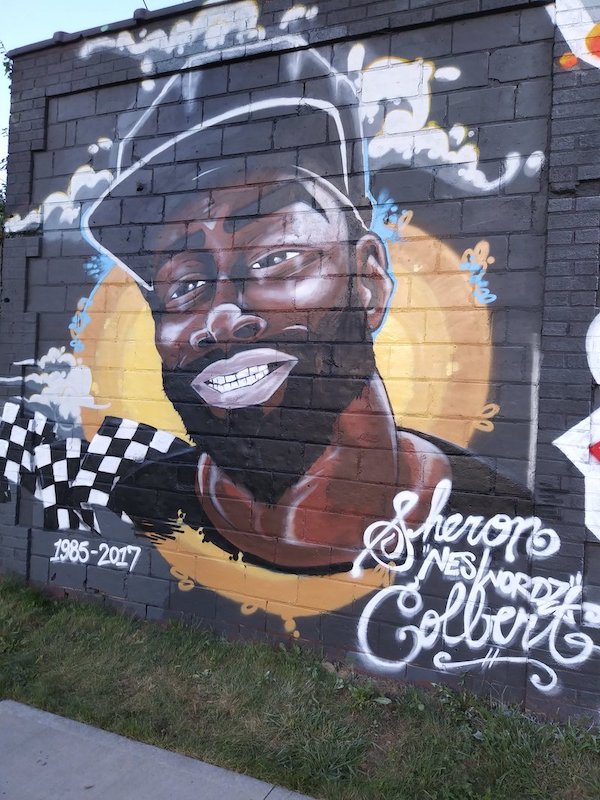Remembering Nes: MLK Day 2021
by Gregory Jusdanis
Although we are supposed to honor a civil rights hero on Martin Luther King Jr. Day, I prefer instead to commemorate my friend, Nes Wordz.
I got to know Nes Wordz, the stage name of Sheron Colbert, in the summer of 2016 through his involvement with my son’s band, New Thousand. On our deck one evening, we crafted the idea of a hip-hop version of the Odyssey. Nes and New Thousand performed the first episode in my large lecture class on classical literature in October of that year.

Nes’ genius lay in his ability to reinterpret the Odyssey and situate it in Columbus, Ohio. Rather than simply reciting Homer’s verses in hip-hop, he reimagined Odysseus as the character Big O and set him loose in our streets. In the first episode Big O ran into the “gangsta,” One-eyed P (Polyphemus), speaking the idiom of black people in Columbus:
“I’m a man, tryna reap the spoils of the land, with a big torch placed in my hand, I could light up the whole block ya understand, so hot I could make glass from the sand, I’m big O you ain’t know who I am, we’ll get familiar cuz I’m bout to go in....”
In the subsequent year of our collaboration, I saw Nes regularly to discuss the forthcoming version of the Black Odyssey, which would take place in a funeral home, a representation of Odysseus’s descent into the underworld. Nes was going to sing about violence and premature death of African American young men.
Nes sometimes spoke to me of the stressors in his life, many caused by the inequalities of our city. And in his performances he often called for racial justice and paid tribute to dead friends. It was natural then for Nes to translate the violence of racism into his interpretation of Odysseus’ encounter with his fallen comrades in Hades. I was keen to hear the Hades episode, certain it would be brilliant and inventive. But this was never meant to be. The words never got a chance to soar. Nes died on June 28, 2017, a few days after his last performance in ComFest, an annual arts festival in Columbus.
Within weeks of his death, friends and members of his community painted a mural memorializing Nes. Since then I have often wondered how I could commemorate his enchanting smile, his musical virtuosity and capacity to bridge our racial and class divides beyond the short elegy I wrote about him. After all, we erect monuments so that we shall never forget.

But I know that our loved ones also survive in our memories, our narratives, and the conversations we have about them. This is why on this and every Martin Luther King Jr. Day I will listen to Nes. Not a national hero, but a dazzling performer and a visionary who could bring together Homer’s world and contemporary black experience like no other artist, he continues to sing among us.
Gregory Jusdanis
teaches Greek and Comparative
Literature at the Ohio State University.
